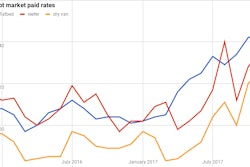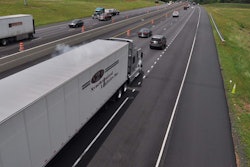
Toyota Motor North America, Inc., says it plans to build the world’s first megawatt-scale carbonate fuel cell power generation plant with a hydrogen fueling station to support its operations at the Port of Long Beach.
When it comes online in 2020, Tri-Gen will generate approximately 2.35 megawatts of electricity and 1.2 tons of hydrogen per day, enough to power the equivalent of about 2,350 average-sized homes and meet the daily driving needs of nearly 1,500 vehicles. The power generation facility will be fully renewable, supplying Toyota Logistics Services’ (TLS) operations at the port and making them the first Toyota facility in North America to use 100 percent renewable power.
“For more than twenty years, Toyota has been leading the development of fuel cell technology because we understand the tremendous potential to reduce emissions and improve society,” says Doug Murtha, group vice president- Strategic Planning. “Tri-Gen is a major step forward for sustainable mobility and a key accomplishment of our 2050 Environmental Challenge to achieve net zero CO2 emissions from our operations.”
In addition to serving as a key proof-of-concept for renewable, local hydrogen generation at scale, Toyota says the facility will supply all Toyota fuel cell vehicles moving through the port, including new deliveries of the Mirai sedan and Toyota’s heavy duty hydrogen fuel cell class 8 truck, known as Project Portal. To support these refueling operations, Toyota has also built one of the largest hydrogen fueling stations in the world on-site with the help of Air Liquide.









